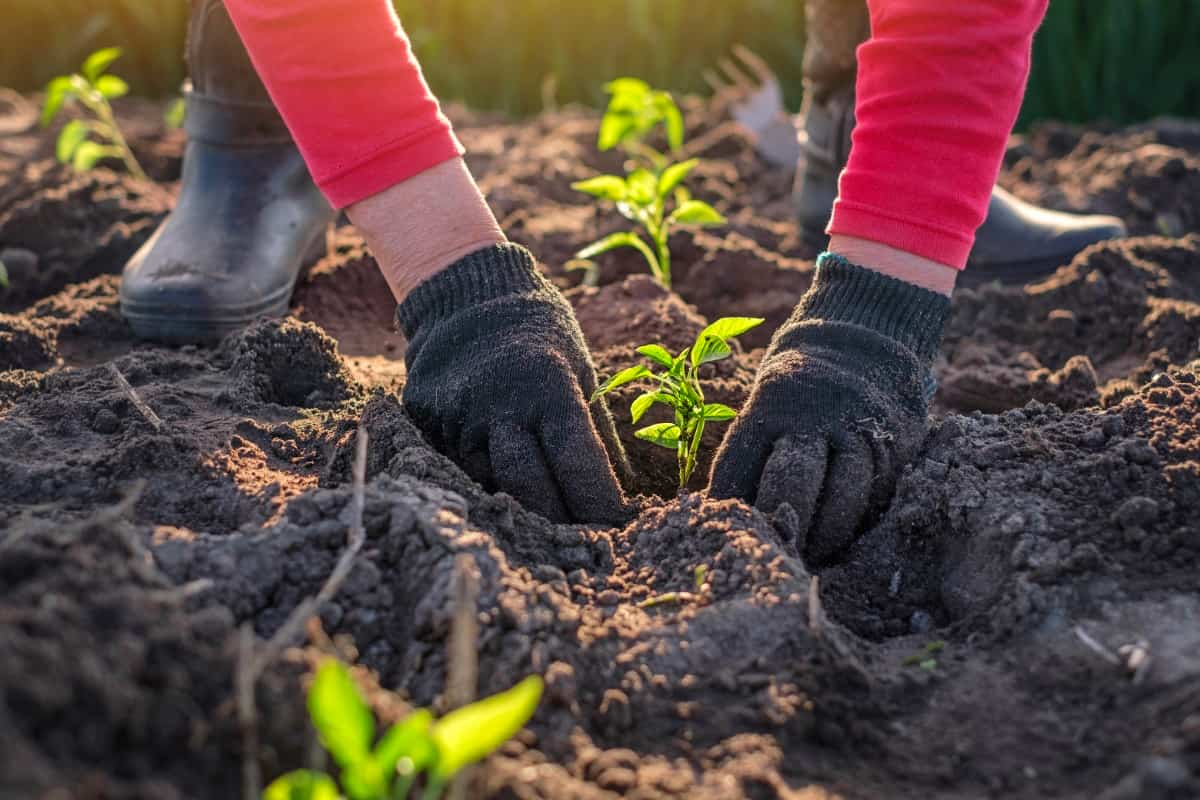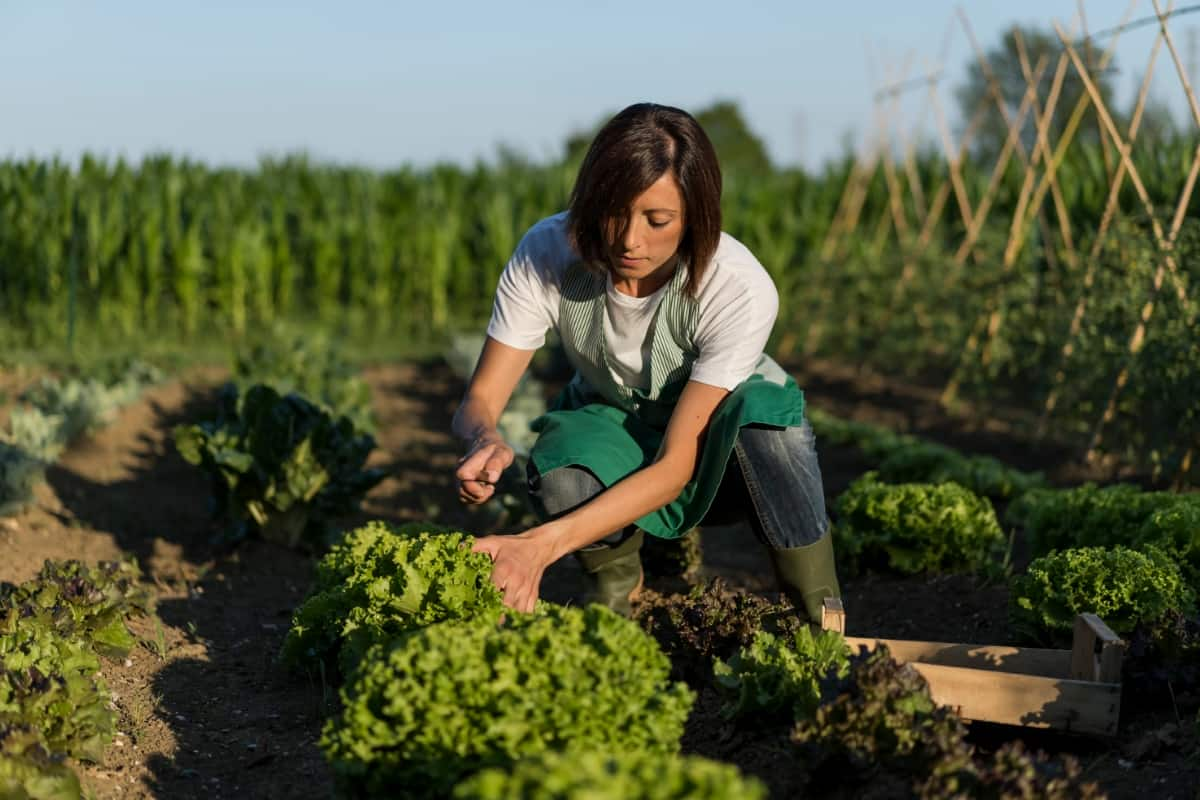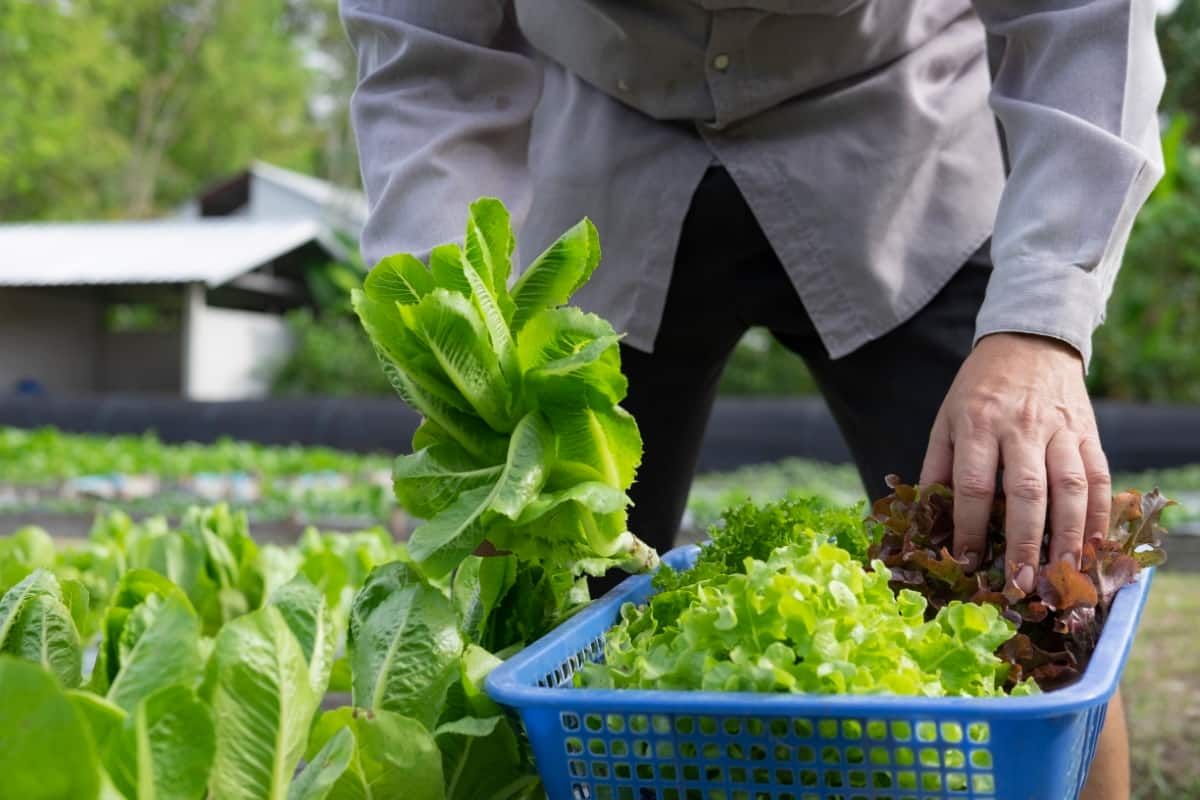Affectionately known as the Peach State, Georgia has much more to offer beyond just peaches. The fertile lands and diverse climate conditions of East Georgia make it an excellent region for various vegetables. From the arrival of Spring to the frost of Winter, each season offers opportunities for planting and harvesting different types of vegetables.

This comprehensive guide serves as an East Georgia Vegetable Planting Calendar. It will navigate you through the ins and outs of gardening in East Georgia, from the best vegetables to plant to seasonal planting and vegetable varieties for successful gardening.
East Georgia Vegetable Planting Calendar
East Georgia Vegetable Planting Schedule
In East Georgia, the gardening season typically begins in late February or early March. With a longer growing season than most of the country, gardeners can expect multiple plantings and harvests yearly. Cool-season vegetables like broccoli, cabbage, kale, and peas can be planted in early Spring.
In contrast, warm-season vegetables such as tomatoes, peppers, and cucumbers are sown after the last frost, typically in late April or early May. Fall plantings commence in late August to early September, with crops like broccoli, spinach, and lettuce, which thrive in cooler weather. Winter gardens can be planted in late October or early November with cold-hardy vegetables such as kale, spinach, and collards.
Best Vegetables to Plant in East Georgia
The climate in East Georgia is conducive to a wide range of vegetables, which thrive given the region’s long and warm growing season. Tomatoes, corn, okra, and peppers are some of the best vegetables to plant here. These warm-weather crops thrive in the intense heat of Georgia’s summers.
Crops like spinach, lettuce, and other greens do exceptionally well in the cooler seasons. Root vegetables like carrots, radishes, and turnips thrive in temperate winters, facilitating a fruitful winter cultivation. Garlic and onions, planted in the Fall, are ready for harvest in early Spring, completing the yearly cycle of planting and harvesting in East Georgia.
Optimal Planting Dates for East Georgia Vegetables
| Vegetable | Spring Planting Dates | Fall Planting Dates |
| Beans (Bush) | March 15 – May 15 | July 15 – Aug 31 |
| Beans (Pole) | April 1 – May 15 | July 15 – Aug 15 |
| Beets | Feb 15 – April 15 | July 15 – Sep 15 |
| Broccoli | Feb 15 – March 15 | July 15 – Aug 15 |
| Cabbage | Feb 15 – March 15 | July 15 – Aug 15 |
| Carrots | Feb 15 – March 15 | July 15 – Sep 15 |
| Corn (Sweet) | March 15 – May 15 | July 15 – July 31 |
| Cucumbers | April 1 – June 1 | July 15 – Aug 15 |
| Lettuce | Feb 15 – April 15 | Aug 15 – Sep 15 |
| Okra | April 15 – June 15 | – |
| Peas (English) | Feb 15 – March 15 | Aug 15 – Sep 15 |
| Peas (Southern) | April 1 – June 1 | July 15 – Aug 31 |
| Peppers | April 15 – June 1 | – |
| Potatoes | Feb 1 – March 15 | – |
| Squash (Summer) | April 15 – June 15 | July 15 – Aug 15 |
| Squash (Winter) | April 15 – June 15 | – |
| Tomatoes | April 1 – May 1 | July 15 – July 31 |
| Turnips | Feb 15 – April 15 | July 15 – Sep 15 |
East Georgia Planting Guide for Vegetables
- March-April: Cool-weather crops can be started, such as lettuce, kale, spinach, and peas. This period presents a favorable opportunity for the cultivation of potatoes and onions.
- May-June: Plant warm-season crops like tomatoes, peppers, squash, cucumbers, and beans. Corn can also be started during this period.
- July-August: Continue planting warm-season crops like bush beans and summer squash, particularly those with short growing seasons.
- September-October: Start your Fall vegetable garden. Plant broccoli, cauliflower, cabbage, and greens like kale and spinach. Root vegetables like beets, radishes, and carrots are suitable for cultivation to achieve a late Autumn yield.
- November-February: Winter is a time for cold-hardy vegetables. Spinach, kale, and collards can be planted now and will provide fresh greens throughout the winter months.
In case you missed it: South Georgia Vegetable Planting Calendar: Gardening in Different Seasons and Month-Wise Schedule

Recommended Vegetables for East Georgia Gardens
Selecting vegetables that perfectly match the prevailing climate and soil conditions of the area is crucial for establishing a flourishing garden. In East Georgia, recommended vegetables include okra, Southern peas (black-eyed, purple-hull, crowder), sweet potatoes, and various beans due to their resilience to heat and humidity.
Seasonal Vegetable Planting in East Georgia
Understanding the seasons is crucial to success in gardening. Spring and Fall are excellent seasons for planting various vegetables in East Georgia, including leafy greens and root vegetables. These crops prefer the cooler temperatures of these transitional seasons and often taste better when they mature in cool weather.
Summer in East Georgia is hot and often humid, making it ideal for heat-loving plants like okra, sweet potatoes, and southern peas. These vegetables thrive in high temperatures that might cause other plants to wilt. Thanks to its mild winters, winter vegetable gardening is also possible in East Georgia. Hardy vegetables like kale, collards, and spinach can grow well into the colder months, providing fresh produce when other regions are under snow.
Vegetable Planting Tips for East Georgia Climate
East Georgia’s climate presents unique challenges and opportunities for gardeners. The long, hot summers require vigilant watering and mulching to keep the soil moist and cool. Soaker hoses or drip irrigation can help provide consistent moisture while conserving water. Mulch also helps retain soil moisture and suppresses weeds.
On the other hand, the mild winters provide opportunities for year-round gardening. Cold frames, hoop houses, or other season extenders can help protect plants during occasional cold snaps and extend the growing season. Another tip for success in East Georgia’s climate is to take advantage of the long growing season by practicing succession planting. By staggering the plantings of fast-growing crops, you can have a continuous harvest throughout the season.
Year-Round Vegetable Planting in East Georgia
The mild climate in East Georgia allows for year-round vegetable gardening. Spring, summer, fall, and even winter all have their list of suitable crops. This makes it possible to have fresh vegetables at any time of the year.
Spring gardens are filled with leafy greens like spinach and lettuce, while the summer garden produces tomatoes, peppers, and eggplant. In the fall, gardeners can grow broccoli, cabbage, and radishes, and winter brings harvests of collards, kale, and onions. With careful planning and plant selection, gardeners can have a productive garden all year round.
In case you missed it: North California Vegetable Gardening/Planting Calendar for Different Seasons and Months

Vegetable Varieties for Successful Gardening in East Georgia
Choosing the appropriate varieties is crucial for achieving gardening triumph in East Georgia. Heirloom cultivars, cherished and inherited over time, offer exceptional flavor and are well-suited to the region’s specific cultivation requirements. For tomatoes, varieties like ‘Cherokee Purple,’ ‘Better Boy,’ and ‘Celebrity’ are popular. For peppers, ‘Cayenne,’ ‘Bell,’ and ‘Jalapeno’ are reliable and productive.
Okra varieties like ‘Clemson Spineless’ and ‘Emerald’ are well-suited to Georgia’s hot summers. For Southern peas, try ‘Purple Hull,’ ‘Zipper Cream,’ or ‘Black-eyed Peas.’ Choosing the right varieties, planting at the right time, and caring for your plants will ensure a productive and rewarding vegetable garden in East Georgia.
- Feed Your Flock for Less: Top 10 Tips to Save on Chicken Feed
- Ultimate Guide to Ossabaw Island Hog: Breeding, Raising, Diet, and Care
- Hatching Answers: The Top 10 Reasons Your Chickens Aren’t Laying Eggs
- Eggs and Economics: Breaking Down the Cost of Raising Backyard Chickens
- Defend Your Greens: Proven Methods to Keep Iguanas Out of Your Garden
- Ultimate Guide to Cinnamon Queen Chicken: A Comprehensive Guide for Beginners
- Ultimate Guide to California Tan Chicken: Breeding, Raising, Diet, Egg-Production and Care
- Ultimate Guide to Marsh Daisy Chicken: Breeding, Raising, Diet, and Care
- 10 Types of Chicken Farming Businesses You Can Start for Profits